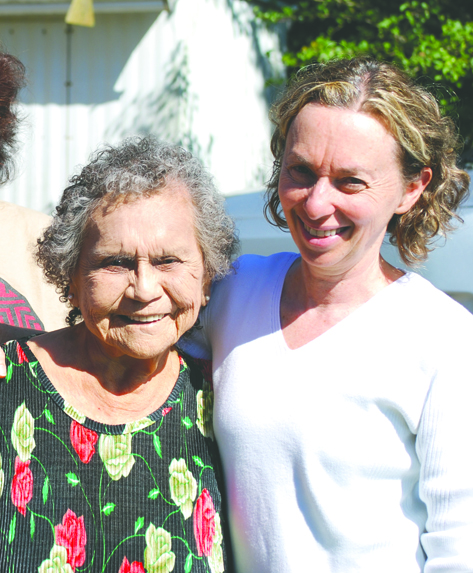PORT ANGELES — Adeline Smith, the Lower Elwha Klallam tribal elder who played key roles in preserving the site of Tse-whit-zen village, the Elwha River dam removals and documenting the Klallam language, has died.
Smith, who turned 95 last Friday, died Tuesday morning in Tacoma, where she was staying with family members, Lower Elwha Klallam Tribal Chairwoman Frances Charles said Tuesday afternoon.
Smith celebrated her 95th birthday with family members and other members of the tribe, Charles said.
No memorial service date has been announced.
Born March 15, 1918, Smith grew up in the Port Angeles area, watching the decline in salmon runs on the Elwha River and the disappearance of Tse-whit-zen village on the Port Angeles Harbor waterfront.
In the early 21st century, she witnessed the preservation of the Tse-whit-sen site after a state dry-dock construction project to build floating-bridge pontoons was halted.
And she celebrated with tribal members at the September 2011 ceremonies to begin the removal of the two Elwha River dams.
Once the reservoir behind the lower Elwha Dam was drained, she witnessed the tribe’s ceremonial creation site that had been inundated since Lake Aldwell was created just before she was born.
Tse-whit-zen, at the base of Ediz Hook, is the largest ancient Native American village discovered in Washington state.
It dates back more than 2,700 years.
More than 300 bodies were exhumed during the state’s graving yard project before it was stopped by then-Gov. Gary Locke in 2004.
The bodies since have been reburied by the tribe, and the land turned over to the Lower Elwha.
Smith told state Department of Transportation officials that as a child, she and others were warned never to walk across or play on the sacred ground of the Tse-whit-zen site.
She was one of two remaining tribal members who spoke the Klallam language as their first language and was instrumental in the development of a Klallam language dictionary, which was released publicly last December.
With her death, the only remaining native Klallam speaker is Hazel Sampson, age 103, Charles said.
With Timothy Montler, a University of North Texas linguistics professor, Smith helped develop a written Klallam language alphabet.
She helped Montler in transcribing recordings made in 1942 that had sounds that do not occur in English.
Smith was the single largest contributor to the dictionary, with 12,000 individual words or sentences, according to the dictionary’s list of contributors.
Her efforts revitalized current language programs that teach Klallam to children from preschool through high school ages.
Reporter Arwyn Rice can be reached at 360-452-2345, ext. 5070, or at arwyn.rice@peninsuladailynews.com.

